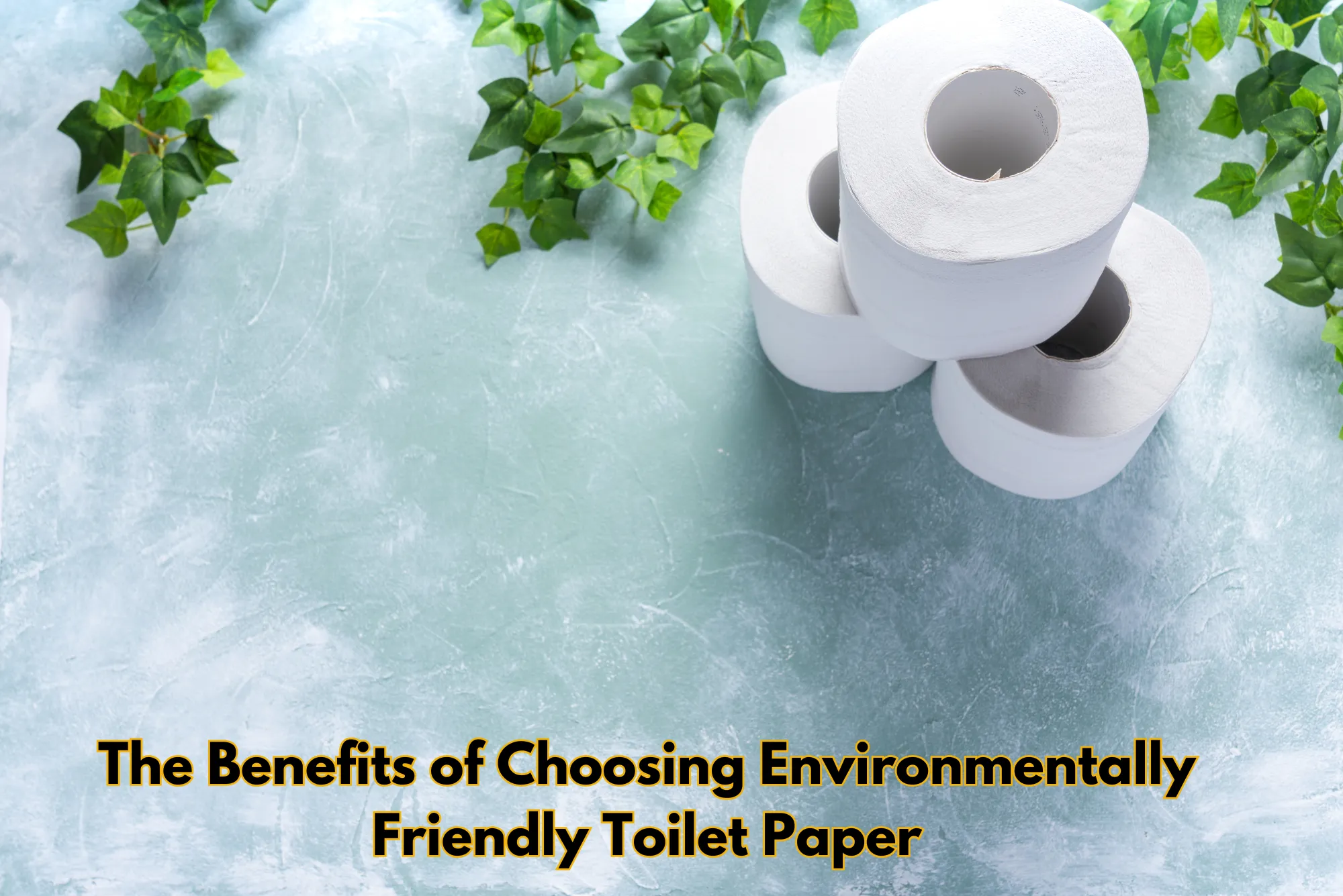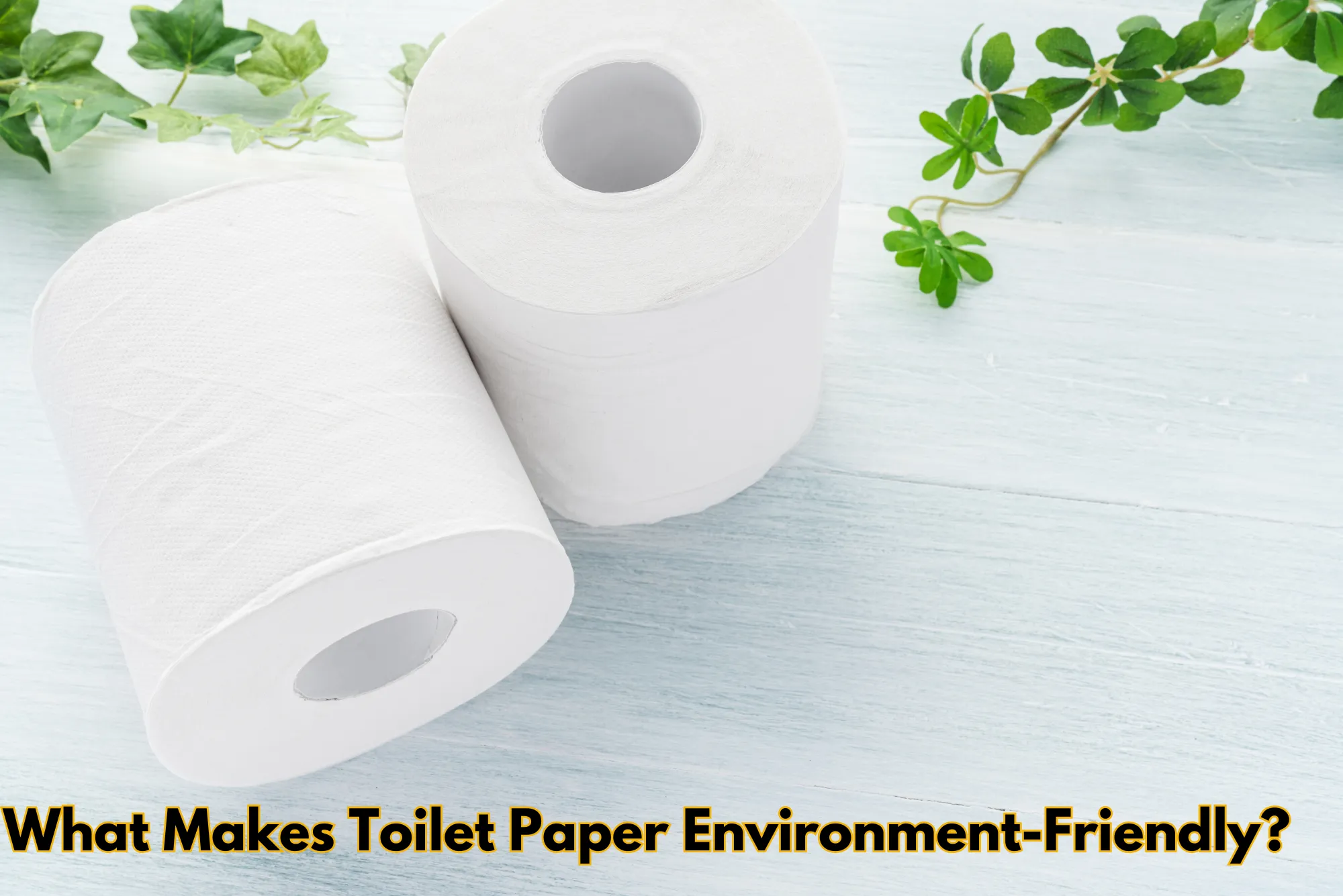Toilet paper is a household essential, but the impact of its production and disposal on the environment has sparked significant debate. As awareness of environmental issues increases, many consumers are looking for alternatives that are less harmful to the planet. In this article, we will explore what makes toilet paper environmentally friendly and the benefits of choosing plastic free toilet paper options.
Understanding the Environmental Impact of Toilet Paper
Toilet paper production has a significant environmental footprint. Traditional toilet paper is often made from virgin wood pulp sourced from trees, which contributes to deforestation. Additionally, the manufacturing process involves extensive water usage and energy consumption, leading to increased carbon emissions. The chemicals used in the bleaching process can also harm aquatic ecosystems when they enter waterways. Furthermore, conventional toilet paper often comes packaged in plastic, which adds to plastic pollution and is a concern for environmental advocates.
Deforestation and Its Consequences
Deforestation, driven by the demand for toilet paper and other paper products, has devastating effects on ecosystems. Forests are crucial for absorbing carbon dioxide, providing habitat for wildlife, and maintaining biodiversity. The loss of trees not only contributes to climate change but also disrupts water cycles, leading to soil erosion and loss of arable land. By opting for environmentally friendly toilet paper, consumers can help reduce the demand for virgin wood pulp and promote sustainable forestry practices.
Water Usage and Pollution
The process of manufacturing toilet paper is water-intensive. According to various studies, the production of a single roll of toilet paper can require as much as 37 gallons of water. This excessive water usage can strain local water resources, particularly in areas experiencing drought or water scarcity. Additionally, the chemicals used in production can pollute local water bodies, harming aquatic life and degrading water quality. Choosing plastic free toilet paper often means opting for products made from recycled materials, which generally use less water and generate fewer pollutants during manufacturing.
Energy Consumption and Carbon Emissions
The production and transportation of toilet paper consume significant amounts of energy. Traditional toilet paper is often transported over long distances, contributing to greenhouse gas emissions from vehicles. Environmentally conscious consumers can mitigate this impact by selecting products that are produced locally or using environmentally friendly toilet paper made from sustainable materials. Brands focused on sustainability often prioritize renewable energy sources in their manufacturing processes, further reducing their carbon footprint.
What Makes Toilet Paper Environmentally Friendly?
When evaluating the environmental friendliness of toilet paper, several factors come into play, including the source of raw materials, production methods, packaging, and disposal options. Below are the key characteristics that define environmentally friendly toilet paper.
Made from Recycled Materials
One of the most significant steps toward creating environmentally friendly toilet paper is using recycled materials. Recycled toilet paper is produced from post-consumer waste, meaning it repurposes used paper products instead of relying on virgin pulp. This process significantly reduces the demand for trees, conserves water, and lowers carbon emissions. Brands that offer plastic-free toilet paper typically focus on utilizing recycled fibers, making their products more sustainable.
Sustainable Sourcing
For those who prefer products made from virgin pulp, choosing toilet paper sourced from sustainably managed forests is essential. Sustainable forestry practices ensure that tree harvesting is done in a way that maintains the ecological balance, allowing forests to regenerate and thrive. Look for certifications from organizations like the Forest Stewardship Council (FSC) or the Sustainable Forestry Initiative (SFI), which indicate that the product meets strict environmental and social standards.
Biodegradable and Compostable
Toilet paper that breaks down naturally in the environment is another critical aspect of sustainability. Conventional toilet paper is often treated with chemicals and additives that can slow down decomposition, but environmentally friendly toilet paper is designed to be biodegradable or compostable. This means that after use, it will decompose naturally without harming the environment. Some brands even market their products as compostable, allowing consumers to dispose of them in home compost systems safely.
Plastic-Free Packaging
Plastic pollution is a growing concern worldwide, and the packaging of consumer goods, including toilet paper, plays a significant role in this issue. Many traditional toilet paper brands use plastic wrapping, which can take hundreds of years to decompose in landfills. Choosing plastic-free toilet paper options means selecting brands that use biodegradable or recyclable packaging materials, further reducing plastic waste and encouraging responsible disposal.
Chemical-Free Production
The manufacturing process for toilet paper often involves harsh chemicals for bleaching and softening. Environmentally friendly toilet paper brands prioritize using non-toxic, environmentally safe chemicals. Chlorine-free bleaching processes, such as those using hydrogen peroxide, can significantly reduce harmful byproducts entering the environment. Choosing chemical-free products helps protect ecosystems and the health of consumers.
The Benefits of Choosing Environmentally Friendly Toilet Paper

Opting for plastic-free toilet paper or other sustainable alternatives comes with numerous benefits for both the individual and the environment.
Supporting Sustainable Practices
By purchasing environmentally friendly toilet paper, consumers support brands committed to sustainable practices. This demand encourages companies to adopt eco-friendly manufacturing methods and source materials responsibly. As more consumers shift towards sustainable options, the market for environmentally friendly products expands, prompting larger brands to reconsider their practices.
Reducing Waste
Choosing toilet paper that is biodegradable or compostable significantly reduces the amount of waste that ends up in landfills. Traditional toilet paper contributes to the growing problem of waste disposal, especially since it is often packaged in non-biodegradable materials. Plastic-free toilet paper options allow consumers to minimize their environmental impact and contribute to a circular economy where materials are reused and repurposed.
Healthier Home Environment
Many environmentally friendly products are free from harmful chemicals that can negatively affect indoor air quality. Traditional toilet paper may contain additives that can irritate the skin or respiratory system. By selecting environmentally friendly toilet paper, consumers can create a healthier living space for themselves and their families.
Cost Savings
While some consumers may perceive plastic-free toilet paper and other sustainable options as more expensive, this is not always the case. As demand for eco-friendly products grows, many brands offer competitively priced alternatives. Moreover, opting for products made from recycled materials often provides a cost-effective solution without sacrificing quality.
Positive Environmental Impact
By making conscious choices regarding toilet paper, consumers can collectively contribute to positive environmental change. Each roll of environmentally friendly toilet paper purchased represents a choice that can reduce deforestation, conserve water, and lower carbon emissions. This collective action can significantly impact global sustainability efforts.
Choosing the Right Environmentally Friendly Toilet Paper
With various options available on the market, finding the right plastic-free toilet paper can be daunting. Here are some tips for choosing sustainable toilet paper that aligns with your values:
Research Brands
Look for brands that prioritize sustainability and transparency in their manufacturing processes. Many companies now provide information about their sourcing, production methods, and environmental certifications on their websites. Understanding a brand’s commitment to the environment can guide your purchasing decisions.
Read Labels
When shopping for toilet paper, pay attention to product labels. Look for indicators such as “100% recycled,” “chlorine-free,” and certifications from organizations like FSC. Brands that prioritize sustainability often highlight these features prominently on their packaging.
Try Different Products
Experiment with various brands and types of environmentally friendly toilet paper to find the one that suits your preferences. Some products may feel different than traditional toilet paper, so trying different options can help you find one that meets your comfort and sustainability needs.
Consider Subscription Services
Several companies offer subscription services for eco-friendly products, including toilet paper. This can be a convenient way to ensure you always have sustainable options on hand while reducing the need for plastic packaging associated with store-bought products.
Engage in Conversations
Share your experiences with friends and family about the benefits of choosing plastic-free toilet paper. Engaging in discussions about sustainability can encourage others to consider their purchasing decisions and contribute to broader environmental efforts.
As consumers become increasingly aware of the environmental impact of their choices, the demand for environmentally friendly toilet paper continues to grow. By understanding what makes toilet paper sustainable, individuals can make informed decisions that align with their values. Opting for plastic-free toilet paper not only supports responsible manufacturing practices but also contributes to a healthier planet. Through collective efforts and mindful choices, we can promote sustainability and reduce the environmental footprint of everyday products like toilet paper.








